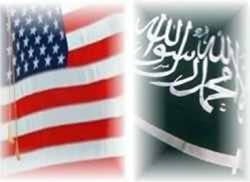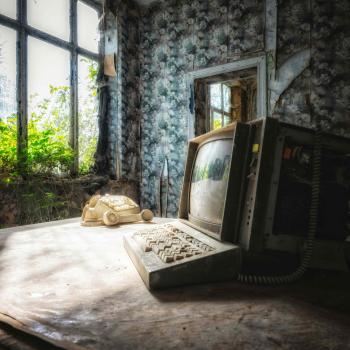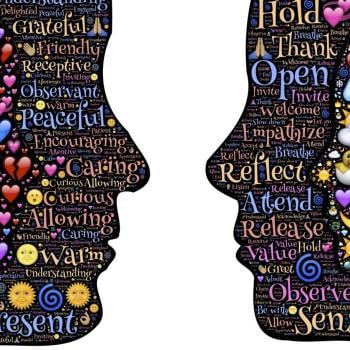Editor's Note: This is the last in a four-part series following Hadi and his family's Ramadan experiences in a Muslim country, comparing it to their Ramadan experiences in the U.S. and their thoughts upon returning to the U.S. Read Part One, Part Two, and Part Three.
 Friday, August 19th, I was in Mecca on the tail end of my Umrah trip. I was desperately looking for a shady spot inside the mosque to sit. Jummah prayer was about three hours away, and I was riding on only four hours of sleep in the last twenty-four hours, not to mention that I had just returned from my experience at the Mountain of Light.
Friday, August 19th, I was in Mecca on the tail end of my Umrah trip. I was desperately looking for a shady spot inside the mosque to sit. Jummah prayer was about three hours away, and I was riding on only four hours of sleep in the last twenty-four hours, not to mention that I had just returned from my experience at the Mountain of Light.
My plan was to hang around the ground floor of the mosque so that when Friday prayers were over, I would be able to rush and touch the Kaaba one last time. I walked through the crowds of thousands for nearly one hour, and there was not one inch of shade under which I could sit. Then, as I was wiping the sweat out of my eyes to squelch the burning, reality began to set in.
I knew I could not continue to walk in the heat nor sit under the blazing rays of the sun, because I was in danger of getting a heat stroke and passing out. The only water that was available was from the Zam Zam drinking fountains. They were spread throughout the mosque and had a crowd of nearly 200 people around each of them. Of course, since it was Ramadan, people were not drinking the water but rather using the water to make wudu.
I felt like a fullback trying to find the smallest opening to squeeze through so I could find a spot to sit. I found a spot inside the mosque in front of one of the Zam Zam drinking fountains; I was sleepy, woozy, and thirsty beyond any level of thirst that I had ever felt before. It was noon and I knew that I could not hang on for another seven hours until iftaar. I convinced myself that I needed to break my fast. It was a very low point.
I had a lot of expectations for Ramadan this year because we were going to be in Saudi Arabia. I knew there would be no disputes in the mosques over sighting the moon versus scientifically calculating the new moon, and I would have the options of going to different mosques and checking out the different types of reciters. I also foolishly believed that my spirituality during this holy month would also be exponentially higher in the Kingdom than in the United States.
However, with the exception of my Umrah trip and a few other significant moments here and there, I actually experienced a lower level of spirituality during Ramadan in a Muslim country than I had in the U.S. Having said that, my comment should not be taken as an indictment on Ramadan or Islam; rather, it should be understood in the context of having such a high expectation and a culmination of hearing the "uncle" generations continuously rant and rave about how much better Ramadan was in their home country. But what I learned was that in Saudi, Ramadan was not a challenge, and that was a game changer.
How much of an effort do you have to exert when the entire society changes their schedule for Ramadan? It's not much of a challenge if one is asleep all day while fasting and up all night eating and shopping. Shopping in Ramadan is like having thirty Black Friday days. I have always questioned the overwhelming emphasis that Muslims have placed on the ritualistic practices of Islam.
Please don't get me wrong. I am not advocating that Muslims stop the rituals. What I am questioning is the end result of all these ritualistic acts—because if you just spent the last two hours standing in prayer, then how can you immediately rush off to a mall and drop thousands of dollars on high-end fashion clothes while continuing to let your maid live in a space that is not even worthy of being your closet? How can you pray, and then treat your driver (and most other expatriates from developing countries) like they are much less than you or barely human?
You can imagine my further disappointment when I was told that the Eid Prayer would be held at 6 a.m.—not to mention the lack of any significant celebrations, decorations, or activities held by the authorities for the society at large. Imagine if Pat Robertson or Jerry Falwell were hired by the U.S. government and charged with planning a Christmas celebration. Can you imagine what that celebration would look like? Well, the Kingdom of Saudi Arabia is run by the Muslim equivalents of Robertson and Falwell, which is why I was expecting a magnanimous Eid celebration. Especially since in their puritanical version of Islam there are only two celebrations allowed and children's birthday celebrations are discouraged.




